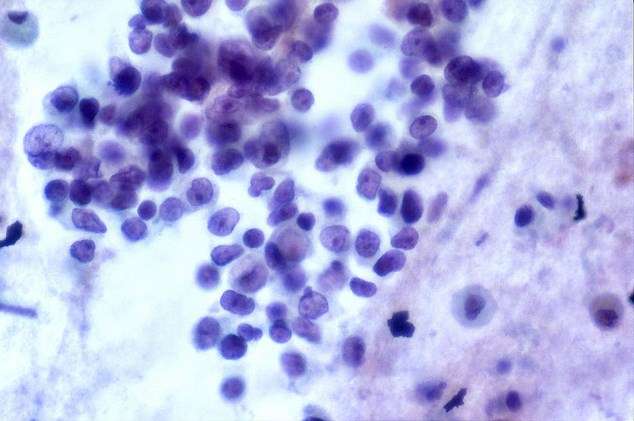Peeking into the genome of a deadly cancer pinpoints possible new treatment

Small cell lung cancer is one of the most deadly kinds of cancers. Typically this aggressive disease is diagnosed fairly late in its course, and the survival rates are so dismal that doctors are reluctant to even subject the patient to surgery to remove the tumor for study. As a result, little is known about the molecular causes of this type of cancer, and no new treatments have been approved by the Food and Drug Administration since 1995.
Now a massive collaboration among researchers around the world, including the University of Cologne in Germany and Stanford, has resulted in the collection of more than 100 human small cell lung cancer tumors. Researchers sequenced the genomes of the tumors and identified some key steps in their development. They also found a potential new weak link for treatment.
The findings were published today in Nature, and Stanford cancer researcher Julien Sage, PhD, one of three co-senior authors of the paper, provided some details in an email:
With this larger number of specimens analyzed, a more detailed picture of the mutations that contribute to the development of small cell lung cancer now emerges. These studies confirmed what was suspected before, that loss of function of the two tumor suppressor genes, Rb and p53, is required for tumor initiation. Importantly, these analyses also identified new therapeutic targets.
The researchers also saw that, in about 25 percent of cases, the Notch protein receptor was also mutated. This protein sits on the surface of a cell; when Notch binds, it initiates a cascade of signaling events within the cell to control its development and growth. As Sage explained:
The mutations in the Notch recepetor were indicative of loss of function, suggesting that Notch normally suppresses small cell lung cancer development. Indeed, when graduate student Jing Lim in my lab activated Notch in mice genetically engineered to develop small cell lung cancer, we found a potent suppression of tumor development. These data identify the Notch signaling pathway as a novel therapeutic target in a cancer type for which new therapies are critically needed.
This is not Sage's first foray into fighting small cell lung cancer. In 2013, he collaborated with other researchers at Stanford, including oncologist Joel Neal, MD, PhD, to identify a class of antidepressants as a possible therapy for the disease.
More information: "Comprehensive genomic profiles of small cell lung cancer." Nature (2015) DOI: 10.1038/nature14664

















